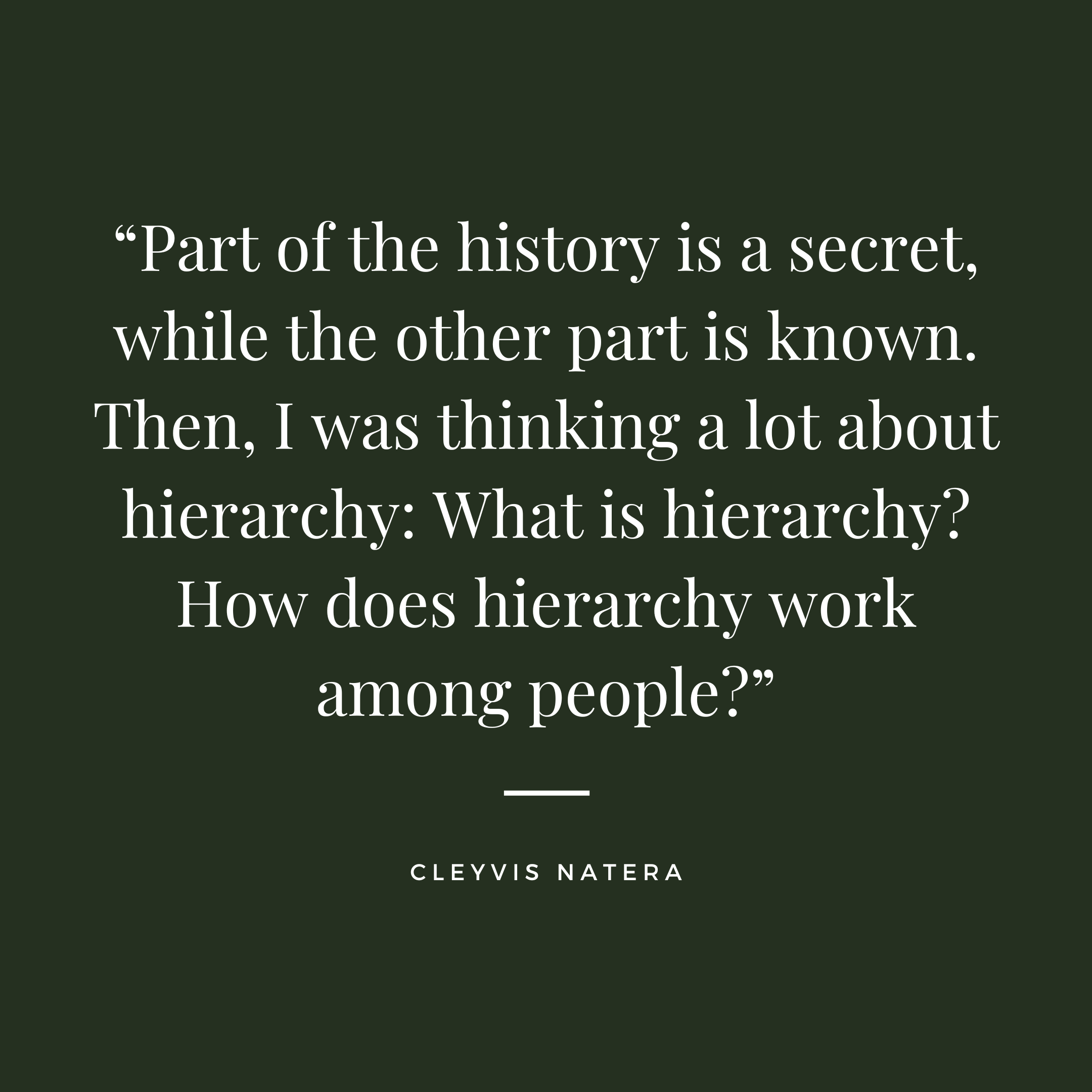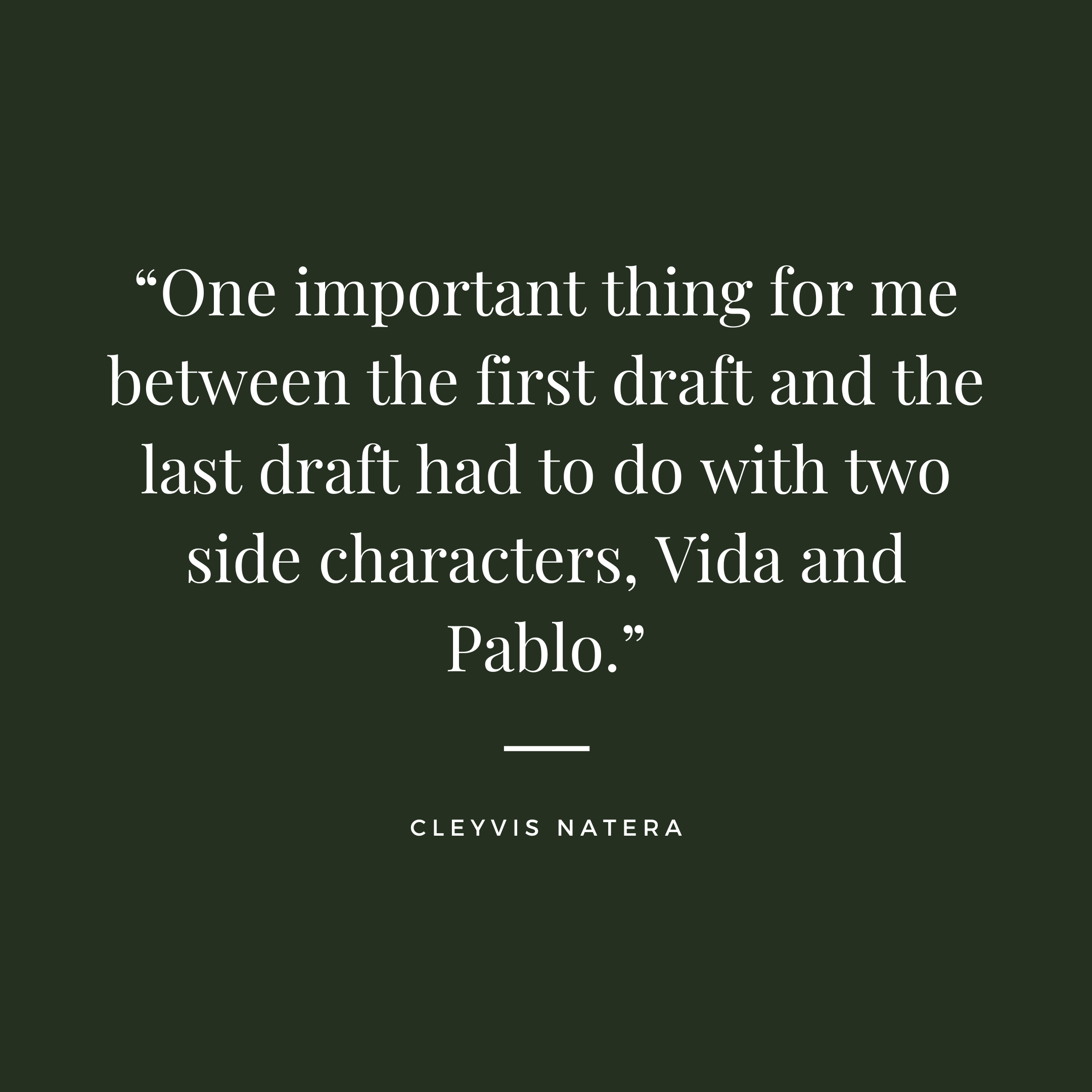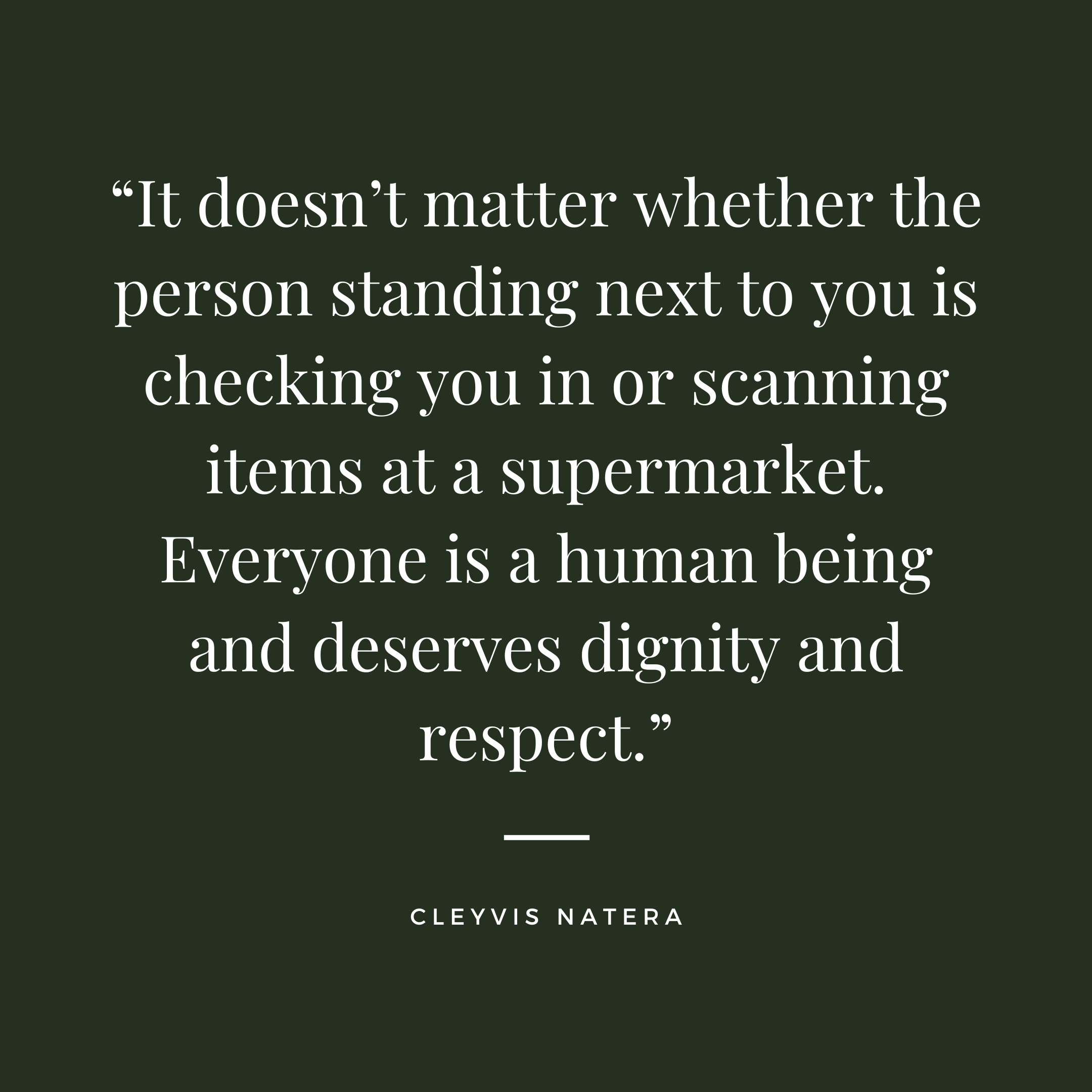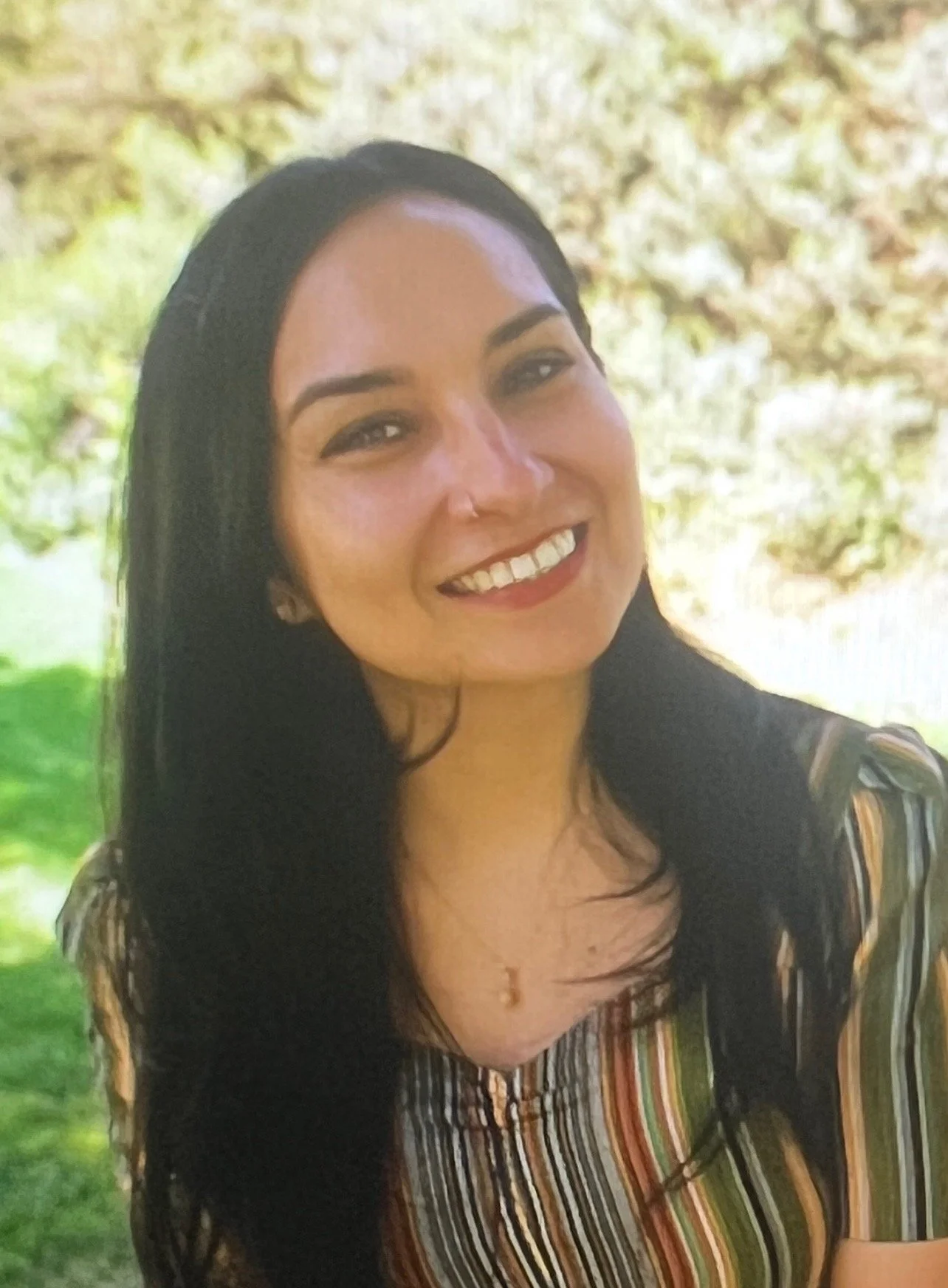Cleyvis Natera on “Grand Paloma Resort”, Her Hopes for Workers in Service, And Not Being Afraid to “Tap into Heritage”
Photograph of Cleyvis Natera by Beowulf Sheehan
In a span of just seven days, Cleyvis Natera’s The Grand Paloma Resort takes readers on a highly tense and unforgettable journey at a luxurious resort in the Dominican Republic. Through authentic and compelling storytelling, readers are immediately met with an injured, possibly dead, child tourist, who was under the watch of a resort babysitter, Elena. From there, Elena’s older sister, Laura, the resort manager, must hide Elena’s tragic mistake from the guests and the resort’s higher ups in order to sustain their opportunity for a better life. The resentment quickly rises between the Dominican sisters, enticing Elena to increase her usage of pills and partying to escape Laura’s high expectations and the unfulfilled guests. However, Elena’s unhealthy coping mechanisms lead to more tragedy: two young, local girls going missing. All the while, the oblivious and carefree foreign guests continue on with their vacation.
Although the plot is filled with fascinating questions on hierarchy and class, it is Natera’s engaging character dynamics and development that are most fascinating here. Natera demonstrates the never-ending struggle to keep love and stability afloat – not only between guests and employees, but among employees and family units. The book will leave readers pondering what privilege means for everyone.
I had the pleasure to interview Cleyvis Natera. Below is our conversation on her inspiration for the story, writing multiple perspectives, what’s next for Cleyvis, and much more.
Alexis: Can you walk us through your writing process for this novel?
Cleyvis: The writing process for the Grand Paloma Resort was a little bit different than for my first book, Neruda on the Park, because I started writing this book as a collection of short stories. It was during the pandemic, and I had just finished editing my debut. My agent and I were waiting to sell it since the pandemic made it a terrible time to take my debut out to market. So, I just started writing these little stories. Since the borders were closed and everyone was on lockdown, I didn’t know if we were ever going to be able to get on a plane again. I just got terribly homesick for my birthplace. I kept thinking about this beautiful country where I’m from, so I wanted to write about the Dominican Republic.
For the stories, I wanted to focus on all these terrible employees who are just making crazy choices and behaving badly. The guests are a mess and the employees are a mess. Then, once we sold my debut book, I put the stories to the side, and I was just focusing on the editorial process for the debut. After my debut came out in 2022, that's when the TV show, The White Lotus, came out. I was so upset because the series is the plot of my book, which is this luxury resort with the focus on the employees. I was a little devastated. But one of my writer friends was like, ‘Don't be ridiculous, that's actually a really good thing since it'll be easier to sell the book.’ And you know what's so interesting? We sold the book at the same time [as the show] even though I hadn't finished writing it. I mean, we ended up selling it as a proposal and I ended up switching it from a collection of stories to a novel.
Overall, this process was so different from my first book. I was writing that book for over a decade. I kept writing and rewriting, and I would throw out a draft and start all over again. And with this novel, it was like, I must keep going to get it done since I was under a set of deadlines. I think I was also lucky that I started in 2020 because I was so familiar with all the characters. I even made an outline, which is different. I had never written an outline before.
Alexis: What inspired you to center the story around resort employees?
Cleyvis: I definitely feel the focus [around resort employees] is one of the things that I am most fascinated by. Because I travel a lot, I tend to stay in very nice places, so I’m around service staff a lot. I also think because I grew up in a house where my mother was always in a service capacity — she was a home health aide. In my family, we just had a lot of people that did various service jobs. When I attended college, I worked in the cafeteria and cleaned dishes. I spent the summer cleaning dorms. I always had this intriguing idea of how different life is for people who work in luxury spaces versus the guests.
I knew what was going to set off the plot was the teenage character, Elena, who makes a mistake at her job. She’s a babysitter at the resort and neglects a tourist child, who ends up injured, which causes tension between her and her sister, Laura, who is a manager at the resort. Meanwhile, Laura just wants Elena to grow up and get herself together. So, I asked questions about what it means to be in an environment where privilege is so clear, yet you're just supposed to do whatever you can to make the rich happy. I felt this was a combustible kind of plot.
Alexis: Though it is written in the third person, the novel shifts between multiple perspectives, both the staff and the guests. Why did you choose this narrative structure? Did the early draft of stories mold the narration into multiple perspectives?
Cleyvis: It was my original conceit for the book, to have it rotate among the employees. When I wrote the book, one of the unexpected things happened, which was I ended up writing a couple of chapters told from the perspective of the resort guests. I was so upset and felt as if I was already messing up. I teach fiction and non-fiction, and I always tell my students, especially my students in fiction, that sometimes you must let the story take its own path. You must let the story go and let it move away even though it doesn’t make sense why. You must trust it.
When I finished the first draft, I realized the part I was most interested in was to have this book resemble a hotel. I wanted to really think about the dirt, the place; I wanted to make it rich and give the town history. Part of the history is a secret, while the other part is known. Then, I was thinking a lot about hierarchy: What is hierarchy? How does hierarchy work among people? Like, there's rich people and there's poor people, there's guests and there's employees. Even among the employees, I wanted there to be this kind of hierarchy. I thought it would be interesting if I made some of the employees work for a manager like Laura, which immediately gives a different sense of the kind of pressure people are under. I also felt that, to get a real sense of what this resort is, it was important to give different characters different motivations for why they're working there, what they're doing there. It would give a reader a rich sense of what this place is about and [bring up] questions when [readers] consider everyone together when [their POVs are] next to each other.
Alexis: You had mentioned the tension between Laura and Elena helped drive the plot. Can you expand more on the strained sibling relationship between the two characters? Was this central from the start, or did it emerge through the writing when you just let the writing go?
Cleyvis: I knew that there was going to be a lot of resentment between the sisters. Laura had taken on the mother role for her younger sister because they lost their mother when they were both really young. On one hand, Laura's entire reason for existing really is her little sister. It’s the reason that she's so focused at work, and she's so ambitious, because she really wants Elena to have this different life — to never have to be in a service capacity. On the other hand, Elena wants to be an activist. She wants to be in service to making the world a better place, which is very idealistic, you know?
Part of what made Elena so sheltered is the hard work that her sister has done. Elena has lived in luxury: she’s never been hungry, she's never had a lack of a home. She’s had an excellent education, a virtual school only senior executives in this resort have access to. Even though she lives in the employee quarters, and there's a lot of issues with the employees living there, Laura hustled her way into this unique upbringing for her younger sister. And she resents Elena for it. Elena gets to be a spoiled brat and a person who doesn’t fully understand what is at stake.
Part of my motivation was setting up the relationship to be really charged. Once I started writing the book, I wasn’t expecting Laura to be such a terrible person. Some things she did during the [story] really surprised me. [As a writer,] you're making up these people, and you're concocting them, but at the same time, when you infuse enough details into the characters, at a certain point, you're bearing witness to the character, not creating them. It was a fascinating process because I was like, what is wrong with this woman? She's making so many terrible decisions! *laughs* But it's unquestionable that they love each other very much, and that they really want the best for each other. It’s a very fraught relationship between the two of them.
Alexis: The novel takes place over just seven days. How did the time span come about?
Cleyvis: The original idea I had was for just seven days. It was an important part of the book for me and for the story. At the beginning of this book, I had a different editor than the editor I have now. My previous editor thought a week wasn’t long enough for the characters to transform and for things to happen. And I was like, I think I can do it! You have to let me try. So, we compromised, and I did make the plot longer for the first draft of the book, but it just didn’t make a lot of sense to the plot. And when my agent reread the different version, he suggested going back to my original idea, to have the story take place in a week. I’m so glad I did! Then, the book just flew. The first day was the longest since I was setting up the whole story, but every day, oh my god, it was so fast paced. As a writer, part of the compromise when you're working with an editor, and you sell a book on a proposal, is that the editor does get a lot more input along the way. So, I was glad that even though I tried to do something else, I ended up doing what I wanted to do.
Alexis: I know we’ve kind of already touched on the writing process, but would you like to expand or add anything about how the story evolved from your first draft to the final version?
Cleyvis: For me, I think so much of what happens in a first draft is that I'm telling myself the story. I'm just kind of learning the motivation of the characters. One important thing for me between the first draft and the last draft had to do with two side characters, Vida and Pablo. Because at the beginning of me writing this book, I just wasn't sure what was going to happen with these two people, you know? I know that Pablo really wants Vida back, yet so much of what he's doing is so misguided, trying to get her. He just doesn't understand her priorities. And, Vida, she's a curandera, she's a healer, she's someone who really cares about the earth and her connection to the ancestors.
I had a tough time with Pablo having a central storyline in the book because I wanted this book to be about women. I considered taking him out of the plot altogether and just have it be Vida, Elena, and Laura. I feel like one of the things that happened between the first draft and the last draft is that I became a fan of Pablo. During the first draft, I thought this man is pure trash, like, what is he doing in my book? Then, I really understood his motivation as someone who's so interested in upper mobility and his interest in wealth and ease is rooted in his love for Vida. But it's also rooted in the trauma he experienced in his life where he couldn't do what he wanted to do for people he loved because he didn't have the means. I appreciate that he’s a work in progress, but he also has a big and good heart.
Alexis: Did you have any hesitations about writing this story?
Cleyvis: I did. I had a lot of hesitations on writing about the Dominican Republic because I left when I was 10 years old. I was worried about whether I was going to be able to capture what it means to be a person who's never left. Because these characters were born in the DR and have grown up there, all the way until their current age. I also wanted to touch on the history of the Dominican Republic, especially as it relates to the current humanitarian crisis that's happening in the DR between Haitian laborers and Haitian migrants, and especially Dominicans of Haitian descent.
I wanted to include this in a respectful way and, so, one of the things that I did, I traveled to the Dominican Republic pretty much every year – especially over the last 3 years as I was writing this book and revising it. I was going back and spending a lot of time there. I interviewed a lot of people that worked in hotels because that's another thing, I've never worked in a hotel. I've only stayed in hotels, but it’s not the same thing. A guest having a Paloma at a hotel bar is not the same thing as a worker serving the drink behind the counter, so I also spent a lot of time interviewing employees. I interviewed a lot of people in the Dominican Republic that work in the service industry, and then people who are laborers. I interviewed a lot of people that were Haitians who had immigrated from Haiti to the Dominican Republic. It was important to create a plot that would illuminate the dynamic, but in a way that felt true to me about what the dynamic is in the Dominican Republic. When it comes to origin and racism and other issues. Part of the way that I wanted to do it was to, like, really honor. I’m nervous to see how the book is going to be received, especially by Dominican people.
Alexis: What do you hope readers take away from the novel?
Cleyvis: Oh my god, I have so many hopes for this book. I think the first thing that I would love is for this book to be an invitation for people to come to the Dominican Republic because I love the Dominican Republic. I grew up in the United States; I've been here since I was ten. I'm a U.S. citizen, so the United States is my home. But the Dominican Republic, as my birthplace, is just stunning.
I've traveled all over the world and sometimes when I go to beaches that are supposed to be the best beaches in the world, I'm like, are you crazy? Have you been to my country? This beach doesn't even reach the ankles of my country’s natural beauty. So, I do hope I’ve done justice in describing [the Dominican Republic] as an inviting place.
I also hope that when people read this book, they really start to think about their place in the ecosystem of tourism. Traveling is a privilege — some of us get to travel, some of us don’t. Regardless of whether you’re getting on a plane to go to the Caribbean or not, all of us are having interactions with people in service jobs. Part of what I hope is that this book helps explain that it doesn’t matter whether the person standing next to you is checking you in or scanning items at a supermarket. Everyone is a human being and deserves dignity and respect.
I really hope that our sense of who the people are that work in service of us, whatever the capacity is, shifts. That we approach those relationships with more respect, with an awareness of people’s complexities. Sometimes we take for granted that just because someone has a [service] job, it means they have to take care of us in some capacity. It doesn’t mean we should be treating them poorly.
Alexis: What are you working on next?
Cleyvis: The good news is that this book is part of a series, so I'm actually working on another Paloma Hotel! I just started working on that book, and I’m very excited. When I started writing this book, one of the things I really wanted to figure out was: if I want to do a series, will it be the same characters or different hotels?
For the next book, I want it to be a completely new cast. Who knows? Laura might come into a later book or make a cameo in the next one. I’m just really excited to keep working on Paloma books.
Alexis: What advice would you give to emerging writers of color, especially those from immigrant families?
Cleyvis: Right now, in the United States, we’re going through one of the most devastating periods for immigrants. I’m an immigrant in this country, and I’m absolutely heartbroken at the way our communities are being persecuted, and the way our families are just being thrown out of this country. Most of us know that the immigrant community has made incredible contributions to American society.
So, I’ve been struggling. On one hand, I feel really heartbroken about what’s happening. But on the other hand, I feel really determined. It’s so important for those of us who are part of these communities to really stand up and tell our stories.
It’s wild to me that we’re living through a period where they’re actively trying to erase our existence. Not in some abstract way, but by straight-up picking us up, kidnapping us, and throwing us out of the country. So, for people who want to become writers, I want to encourage them not to be afraid to tell their stories. Don’t be afraid to tap into that heritage that makes us special.
For me, the turning point in my career was when I decided to tell the truth about what it means to be part of an immigrant community. And that didn’t mean sugarcoating it — I was still talking about difficult things, just like I am with this book. But I want to encourage everybody not to be cowered by what’s happening to our communities. Take solace in knowing that the work we’re doing is more critical now than ever.
This interview has been edited and condensed for clarity.
Lex Garcia
Lex Garcia is a writer for Sunny’s Journal and Press. She earned her MFA at Antioch University and has received additional support from VONA, Tin House, StoryStudio, and The Community of Writers. She is a community college professor and lives in Southern California where she is currently working on her novel.
Read More








